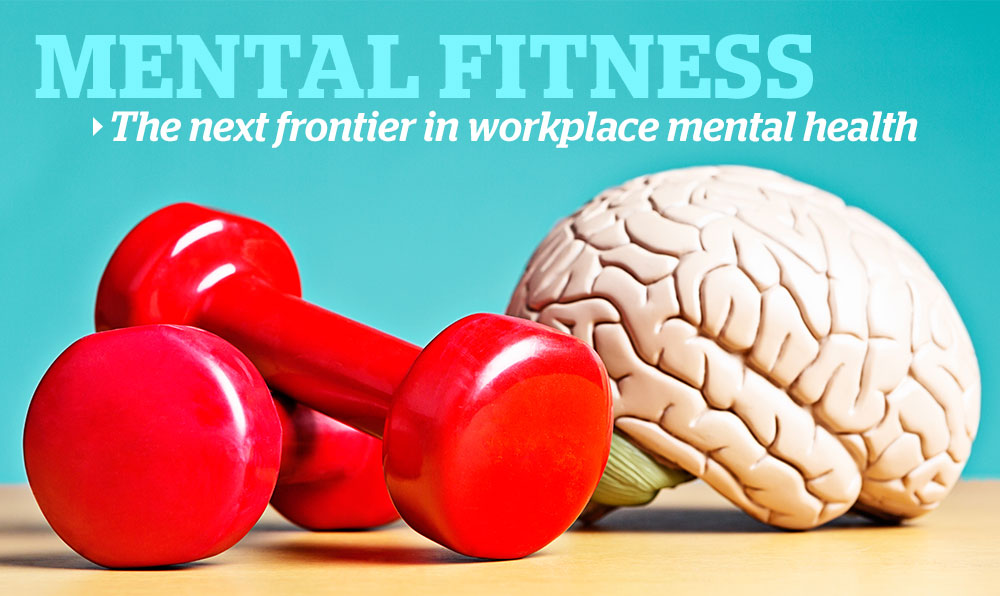

Columns/Blogs
Features
Mental Health
Advice on moving from overwhelmed to calm
By Bill Howatt

EDITOR’S NOTE: ‘Mental Fitness: The next frontier in workplace mental health’ is a weekly series, in partnership with Dr. Bill Howatt of Howatt HR Consulting in Ottawa. This series takes a deeper look at mental fitness — an approach to prevent mental harm and promote mental health.
Developing mental fitness requires making time for mental health, like anything else we value and want. Finding time and energy to focus on mental fitness may be difficult for some because they are overwhelmed by responsibilities and other life challenges.
We can get caught in the mental state of feeling overwhelmed when we are unsure what to do next. We can feel confused and experience unpleasant, intense emotions that leave us feeling that life is hard and difficult to manage.
With this emotion comes tension and pressure that can negatively impact how we think and make decisions.
Ineffective decision-making can disrupt our ability to perform at home and work. The root causes that trigger feeling overwhelmed can be stressors linked to relationships, work, and home expectations.
The more overwhelmed we become, the greater the likelihood we fear we are not in control and are falling behind, creating more negative emotions. This is not an optimal mindset, as it disrupts focus and energy.
“Our mind is more likely to find calm when we are clear on what we will and will not do.” — Dr. Bill Howatt
Moving past feeling overwhelmed to calm begins with self-awareness
When feeling overwhelmed, we are at risk of engaging in reactive and poor decision-making. It is common to feel overwhelmed without a defined daily game plan to set or adjust priorities.
When practised with intention, mental fitness can help a person create more pleasant than unpleasant emotions that can positively impact their emotional well-being.
One way to prevent the negative impacts of chronically feeling overwhelmed is to accept that we can only control our own decisions and behaviours. We cannot control the things others do or want. We can regulate how we perceive and react to the demands we perceive are put on us daily.
Preventing or moving past feeling overwhelmed starts with learning how to be calm under pressure. This attitude can create a desire to learn how to set clear boundaries for prioritizing day-to-day decisions.
Psychologically Safe Workplace Awards provide employers tools, data on mental health
Like any skill, learning how to feel less overwhelmed requires practice.
Below are four microskills that can reduce the risk of becoming overwhelmed and help us feel calm under pressure. We can train our brain not to react under pressure to make good decisions that support our emotional well-being.
Be clear on priorities: Prevention can reduce the risk of feeling overwhelmed. Be clear on your priorities for each day and clearly define your non-negotiables that must get done. I make my mental fitness morning ritual non-negotiable. Regardless of my demands, I ensure I have the energy and focus to get through the day. Being clear on priorities can help lock them in.
Notice rather than react: A person feeling overwhelmed by life benefits from noting and accepting that the emotions are nothing more than indications of pressure to keep up with demands. All unpleasant emotions are chemicals that have a meaning and purpose to get our attention. They do not tell us what to do or think.
Overwhelming emotions are warning indicators that your brain is feeling overloaded and unsure what to focus on next. Resist the urge to speed up and react. Noticing does not require any action other than accepting the feelings as a sign of a need to decide. When the brain is calm, it makes better decisions than when it is racing, which is why it is helpful to notice and give your brain some space to find calm and decide what to focus on next.
Challenge deadlines: Sometimes, fake deadlines stress us the most and leave us feeling overwhelmed. We all need to juggle rules and preferences daily. One way to create more mental space is to challenge deadlines you set for yourself. Pushing something off for a few days to deal with a pressing priority is fine if we are open and honest with ourselves.
When we create an internal rule that everything needs to be done, we reduce our flexibility, which can result in more stress and wear and tear than necessary. Life happens, and things change. The more we can adapt and adjust our priorities without judgement, the more likely we will be able to create a calm mindset.
Practise creating a strategic mindset: Weekly planning helps frame what you want to accomplish. Knowing that things may pop up with work or family can be considered when setting priorities.
Having a list of things that must be done in the next seven days sets priorities and focus. It is easier to say “no” to requests when we are focused on priorities. A no does not always mean never. It may mean simply, “No, I cannot do that this week, but I can do it in two weeks.”
Being strategic and setting boundaries creates a strategic mindset that trains the brain to set and enforce realistic, daily expectations for what you can and cannot do.
 Dr. Bill Howatt is the Ottawa-based president of Howatt HR Consulting.
Dr. Bill Howatt is the Ottawa-based president of Howatt HR Consulting.
If there is a particular microskill or topic you would like to see Dr. Howatt write on that supports employees’ mental health in the workplace, please send your request to Talent Canada editor Marcel Vander Wier.
Print this page